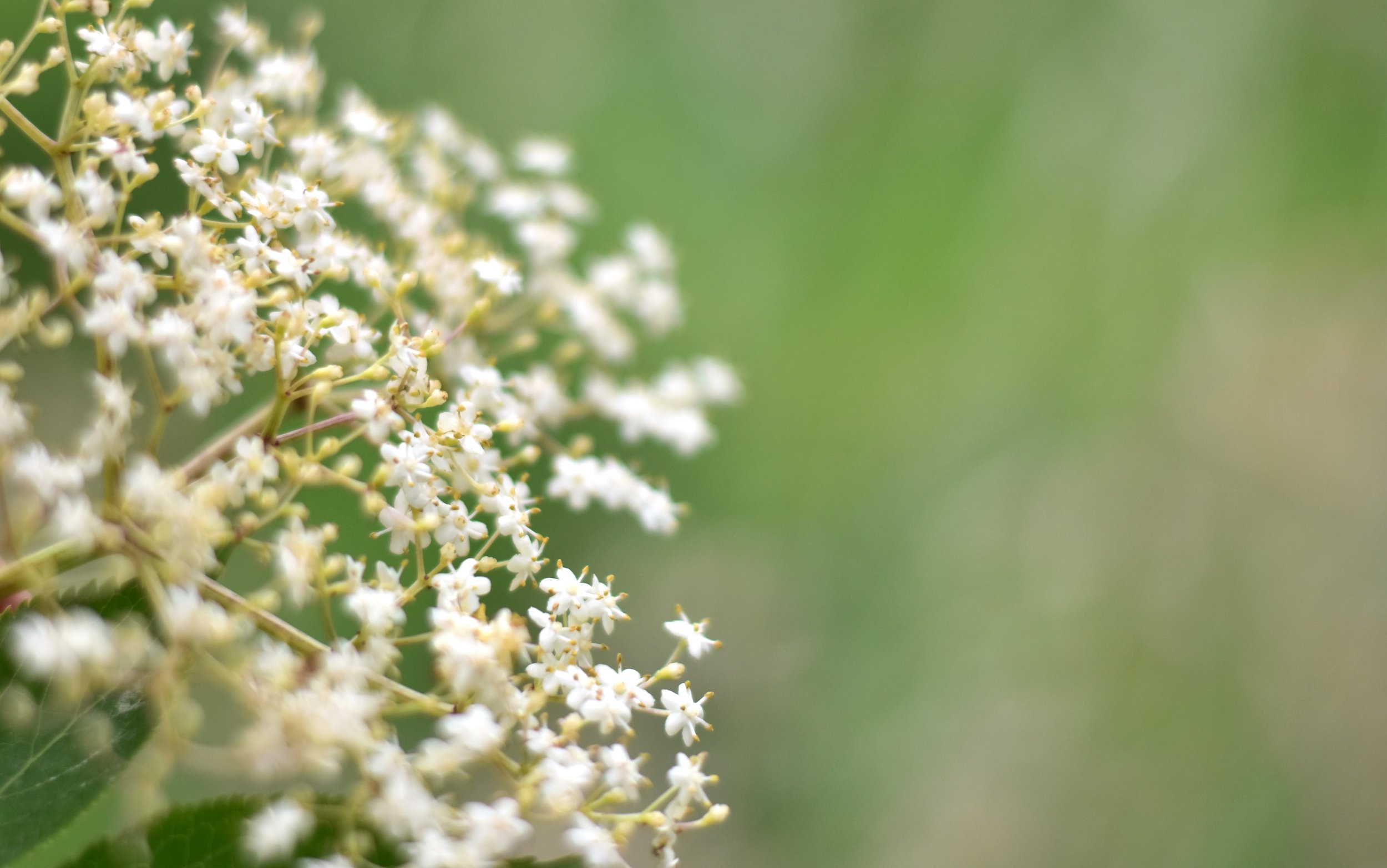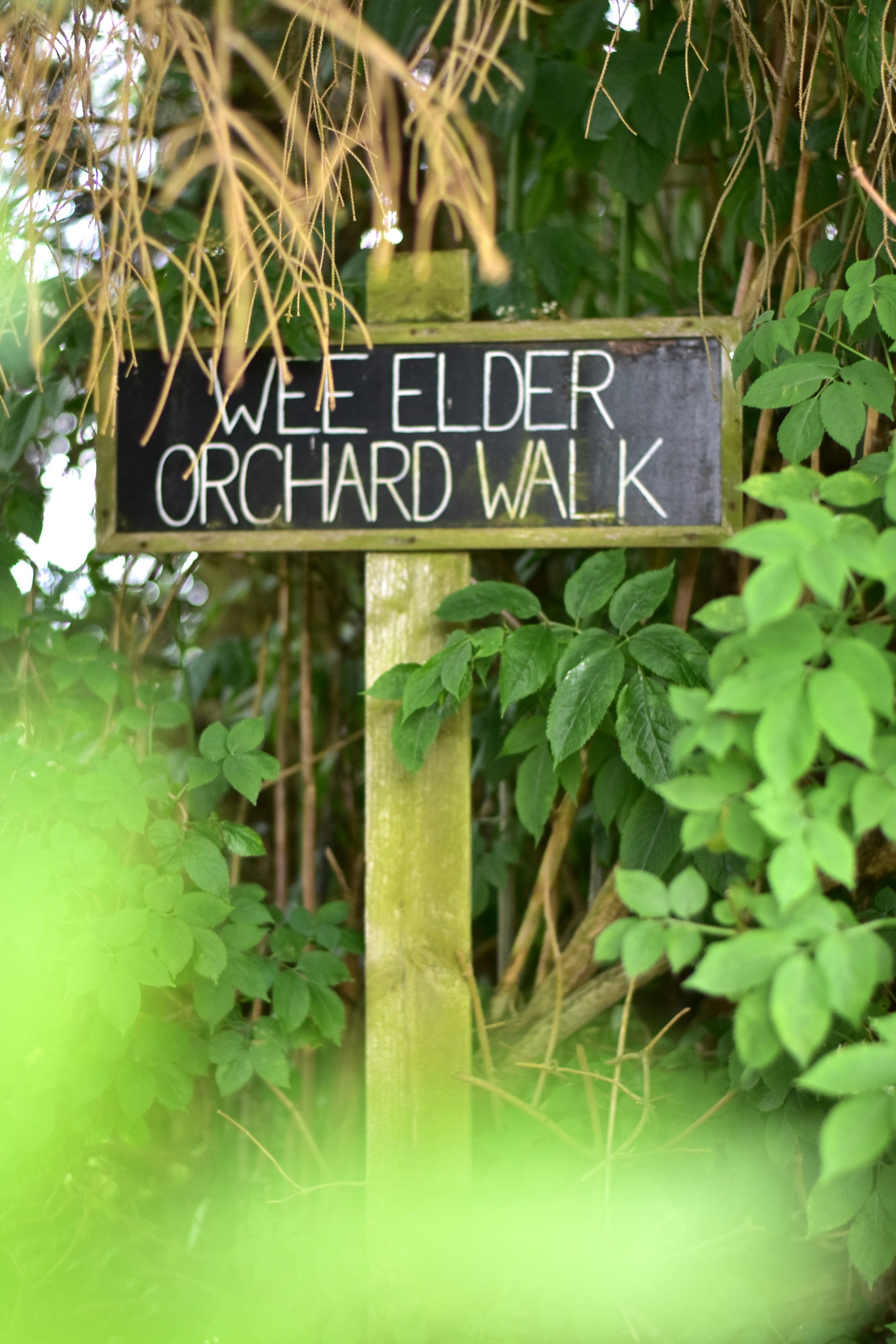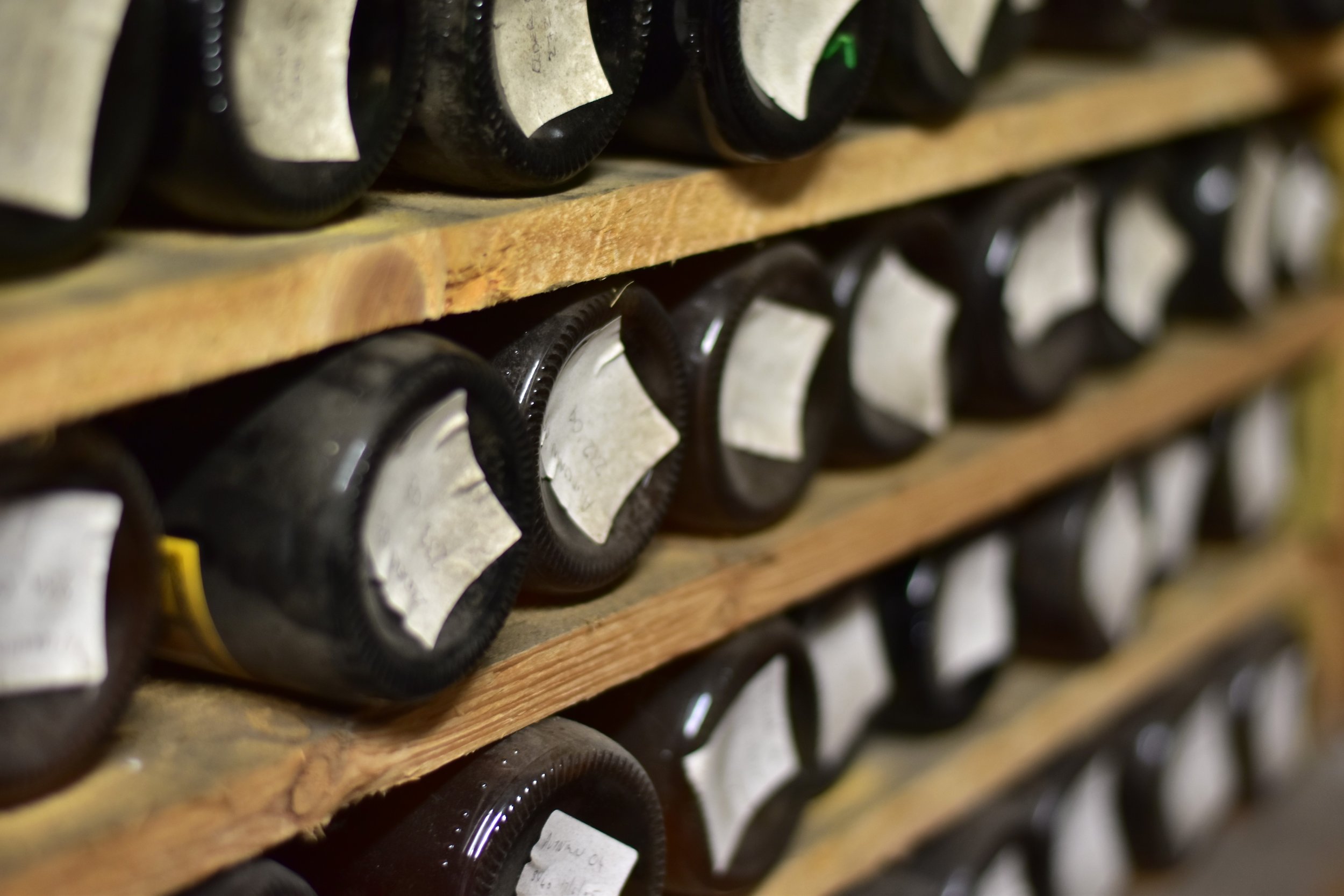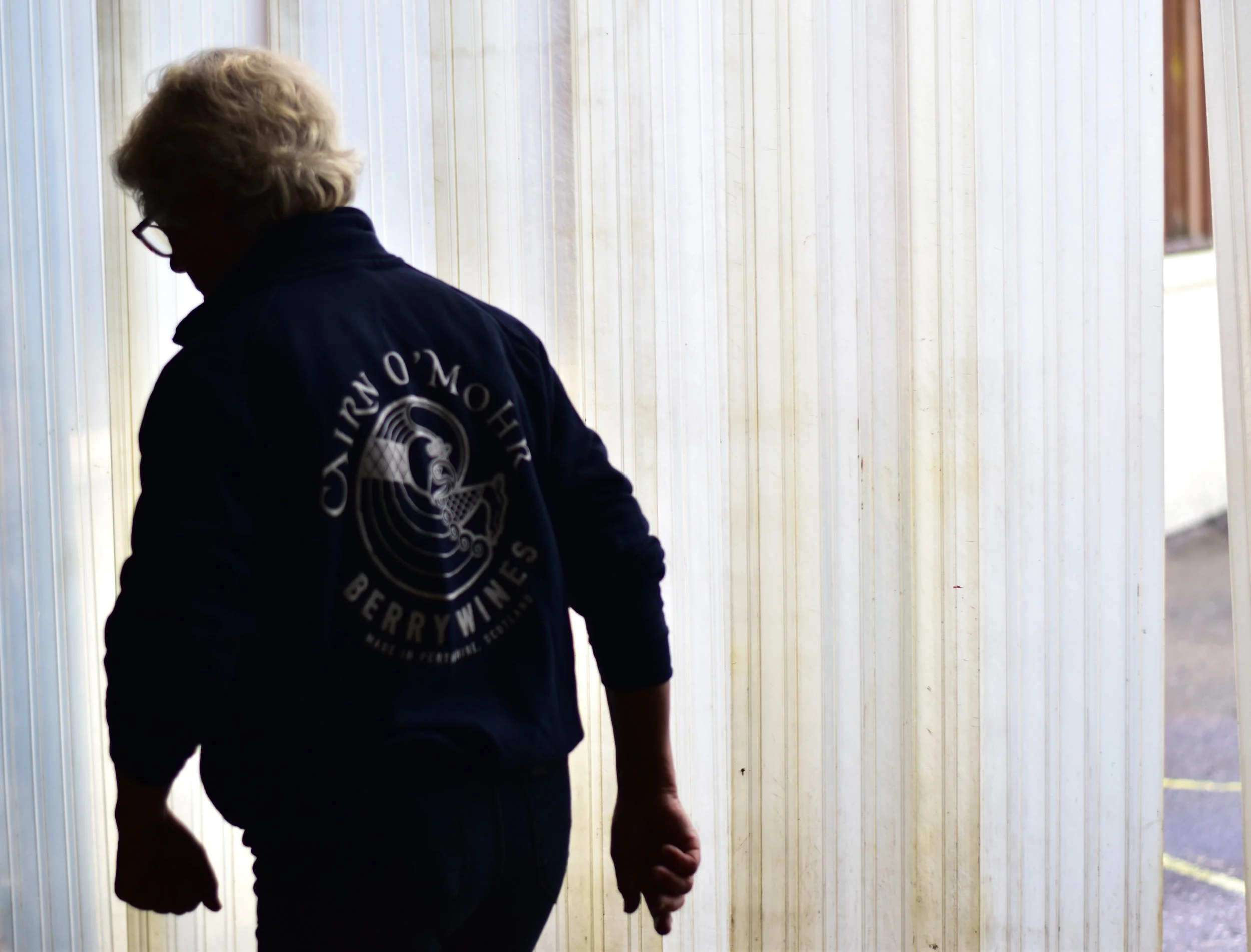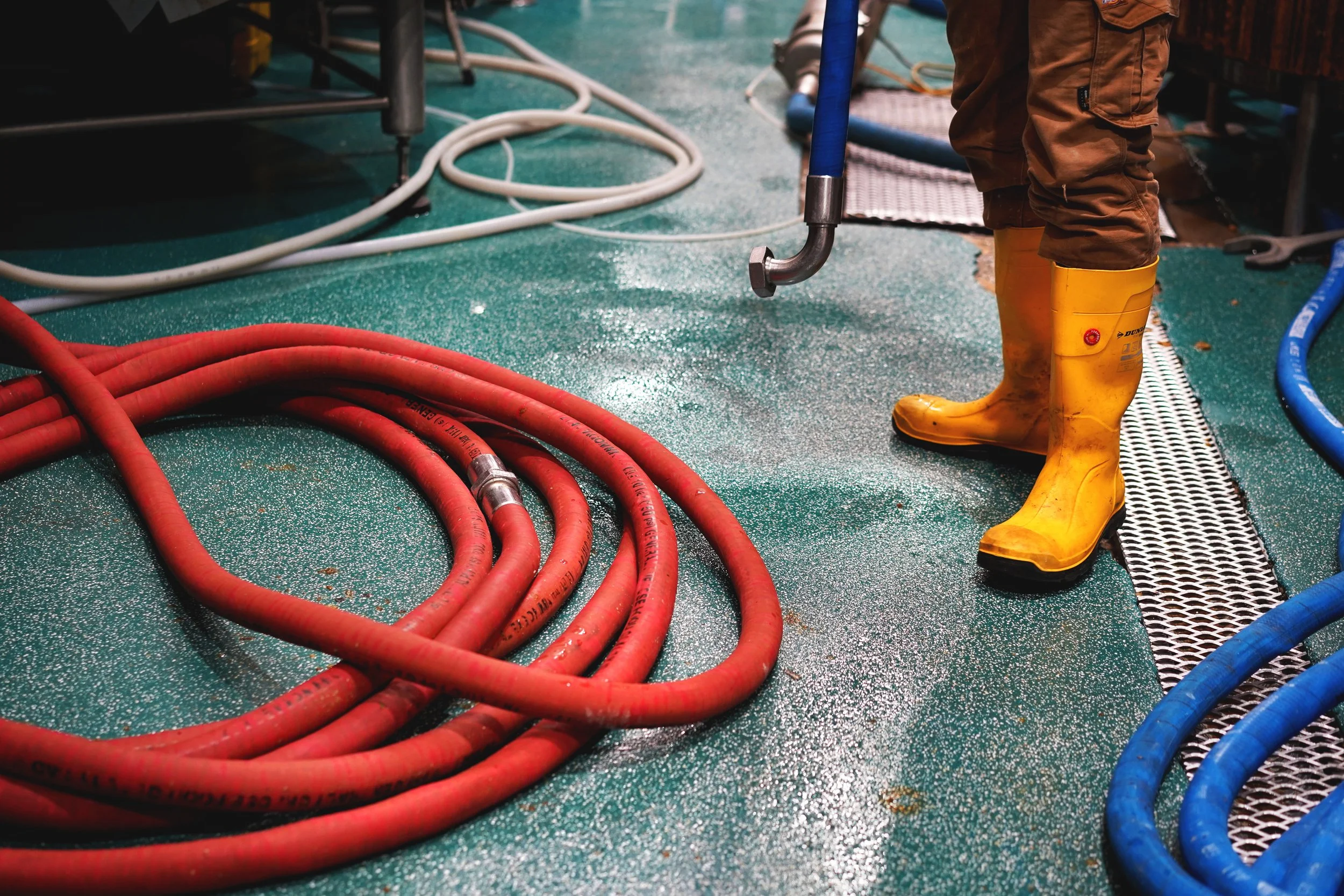Set the Juice, Loose — Cairn o’ Mohr Fruit Wines in Perthshire, Scotland
“The elderflowers are coming on so fast!”
This is one of the first things that comes up in conversation with Judith Gillies, co-founder of Cairn o’ Mohr, a Scottish producer of fruit wines and ciders. She’s not complaining. Quite the opposite, in fact. Even over the phone, her voice fizzles with bracing enthusiasm. I can’t help but smile; we’re not five minutes into our interview and Judith has already taught me an invaluable lesson—as a fruit winemaker, nature’s rhythms are never far from your mind.
Photography by Jacob Smith
When visiting the winery on an overcast day in July, I quickly realised that nature takes centre stage in this idyllic part of Perthshire, an historic county in the east of Scotland. Lush fields gallop away to form the horizon’s emerald hills, while a crisp air whispers both of the nearby Tay and not so distant Cairngorms. Amidst all this sits Cairn o’ Mohr, a pleasing jumble of buildings located on Ron’s—her husband and co-founder—family farm just outside Errol. Looking like a far flung corner of Glastonbury Festival thanks to Ron’s skill with both chainsaw and paintbrush, Cairn o’ Mohr suits this setting perfectly, and I have a suspicion it has done so since it was established here in 1987.
“In those days, you didn't go with a fancy idea to investors, you either went to the bank, who usually said ‘no’, or you just got the money yourself,” Judith tells me. “So, we self-financed it from our shed business.”
With this shoestring budget and the help of many friends and family members, Judith and Ron converted a redundant building into what would eventually become Scotland’s oldest winery. There was little money to spare—Judith fondly recalls a cupboard acting as their only shop—yet, the couple enjoyed something far more valuable than excess cash: access to some of the country’s best fruit.
Thanks to its loamy soils, moderate temperatures and—for Scotland—dryish weather, Perthshire is home to an array of world class berries, apples and flowers. As head of production at Cairn o’ Mohr, Judith puts this bounty to good work, producing around 18 different wines, three alcohol-free beverages and five ciders. While popular fruits like strawberries, brambles and raspberries are central figures in several of Cairn o’ Mohr’s wines, less appreciated ingredients like elderberries, oak leaf and gorse are just as commonly used.
The late 1980s was the perfect time to start convincing people of the inherent value in using local produce. Not only were the British public enjoying a period of relative affluence and economic growth, but the interest in traditional, artisanal food and drink was booming—a retaliation against post war policies that prioritised homogenisation and mass production. Businesses like London’s Neal’s Yard Dairy were proving that championing artisanal food and drinks could be both the basis of a flourishing business, and a means to transform what and how the nation was eating.
“My dad’s saying was: ‘If you use what you hae, you’ll never want,’” Judith says. “All these things that people call weeds, they’re not weeds. They’re plants and they’ve all got different properties, and some of them happen to make nice wine.”
***
While the public have come to appreciate farmhouse cheeses such as Stinking Bishop and Gorwydd Caerphilly in the years since the ‘80s, that great wine can be made with anything but grapes is a sentiment which continues to escape the majority of Britons. Drinks writer Laura Hadland tells me that a lack of availability is, at least partly, to blame.
“There are still very, very few commercial fruit wines available and their distribution is limited,” she says. “You've basically got Lyme Bay in England and Cairn o’ Mohr in Scotland who offer anything like national coverage in their respective countries [...] it's not a very accessible product in that respect.”
Laura explains that fruit wine also has something of an image problem, with people frequently associating it with dank, earthy, garden shed-based experiments. Misconceptions that it's incapable of being nuanced or sophisticated also abound.
““My dad’s saying was: ‘If you use what you hae, you’ll never want.’””
Poorly made fruit wines reinforce these stereotypes, but assuming all fruit wine is only equal to its worst iteration is a lazy, and plainly false double standard. I’ve yet to meet a person who assumes Echo Falls is on a par with Domaine de la Romanée-Conti, and I am staggered that so many self-professed ‘foodies’—and more than a handful of experts—happily partake in such ill-informed generalisations when it comes to fruit wine. That is, until they finally pluck up the courage to try a few. What makes this gleeful abasement all the more baffling is that fruit wines consistently deliver what many wannabe oenophiles actively seek: rich, fruity flavours.
“There are all these rosés at the supermarket and they all say they taste like strawberries,” Judith says. “They don’t taste like strawberries at all! It’s a load of rubbish, honestly.”
During my visit to Cairn o’ Mohr I quickly realise that Judith and Ron do not use fruit as a convenient descriptor, but rather view it as the heart and soul of the winery. I watch on, salivating, as tray after tray of achingly ripe, local strawberries are blitzed to make the fermentable base of Cairn o’ Mohr’s strawberry wine. Just under a pound of strawberries is used to make each bottle and it shows on drinking—the bright smell of idle summers wafts upwards when the bottle is opened and a pronounced strawberry flavour, green calyx and all, makes a mockery of insipid supermarket rosé from the very first drop.
Given the wine’s flavour and aroma, I’m not surprised to learn that both still and sparkling strawberry wine are two of Cairn o’ Mohr’s most popular products. However, Judith has also noticed an increasing demand for non-alcoholic options, the company’s sparkling elderflower in particular.
“Obviously, there’s a big increase in the number of people not drinking and those soft sparkling drinks fill that gap,” Judith says. “It's got quite a similar feel to a wine, it has a good length of flavour and it looks quite like a wine so it's a great substitute.”
Sophisticated non-alcoholic options are not the only reason Cairn o’ Mohr feels well-placed to meet the evolving demands of consumers, both now and in the future. Many of the company’s products are also inherently sustainable, as they’re made with local fruit that is either too ripe, or too misshapen to be sold at the supermarket. This isn’t a wholly unique practice in alcoholic beverage production, with Sussex’s Ascension Cider also working with fruit that doesn’t make the supermarket cut. Nonetheless, it's a brilliant means of operating that is still criminally underutilised.
“We tend to take knobbly fruit,” Judith says. “The ones that are too big, too small, too ripe for the supermarkets, things like that. And it's perfect for making into wine; it’s top quality fruit with a full flavour that just happens to not look so good on the supermarket shelves.”
Outside of its commercial contracts, Cairn o’ Mohr also buys fruit from locals, offering them both cash and discounted products to ensure Perthshire’s embarrassing abundance of apples, berries and flowers does not end up rotting in the county’s back gardens. Frequent foraging excursions—where gorse, oak leaves, elderberries, and other wild produce is picked—mean the winery also makes use of uncultivated resources that would have otherwise gone to waste.
***
“It's got totally out of hand!” Judith says when I ask her how she keeps up with everything. “Doing it this way, it's really hard work, but it keeps it interesting and that’s so important: if your job is interesting you do it without realising it's a job.”
While it may not feel like a job, there’s no doubt that Judith, Ron and the whole Cairn o’ Mohr team are dedicated to their work, a fact that is evident to everyone who is familiar with the company.
“The team at Cairn o’ Mohr are incredibly hard-working but also know how to have fun as well,” says Nikki Storrar, a self-proclaimed ‘eco-warrior’ who runs the exceptional Ardross Farm Shop located near Elie, Fife. “Anyone who forages for as much of the produce as they do must know when it’s time to get your head down and get the work done.”
““Anyone who forages for as much of the produce as they do must know when it’s time to get your head down and get the work done.””
As Ardross Farm Shop is also a family-owned business that prioritises quality and taste, Nikki stocks Cairn o’ Mohr’s products because she appreciates the manner in which the company operates as much as the wine itself.
“We love Cairn o’ Mohr as a business, they are friendly, engaging and unique and their fantastic range of wines look great on the shelf,” she tells me. “My late father thoroughly enjoyed chatting to Ron when he delivered to us, he always has time to catch up and put the world to rights.”
While seemingly trivial, Ron’s choice to stop and chat perfectly encapsulates Cairn o’ Mohr’s entire approach—given a choice between what’s easy and what’s right, Judith, Ron and the team will always choose the latter.
Today, this approach is made most apparent through the company’s cider. After deciding to plant some apple trees to meet increased demand, Judith and Ron opted to experiment with 10 varieties—including King Jimmy, Foxwhelp and Egremont Russet—to see which enjoys the Perthshire environment the most. Similar care is evident in Cairn o’ Mohr’s wines which, aside from being made with recipes that have been perfected after years of trial and error, are also aged, bottled and packaged onsite.
Given all this work, it's easy to assume that Judith would be somewhat bitter given that many wine drinkers continue to dismiss the beverages she has spent her life championing with some even questioning whether fruit wines deserve to be called wines at all. However, Judith’s actual response is far more pragmatic.
“We’re not serious, po-faced people at all [...] We like a joke out here, that’s why it’s called care-no-more,” she says. “Occasionally we get someone like that [visiting the winery], and, to be honest, they shouldn’t come here. They’ll not like it; they’ll not like the place; they’ll not like the wine. They’re not our sort of people and that’s fine, there’s plenty of grape wines for them to enjoy.”
Instead of trying to convince those who have already made up their mind about fruit wine, Judith, Ron and Cairn o’ Mohr choose instead to lean into their own unique identity. The wines remain unapologetically racy and the company’s branding is only becoming more distinct. But more than anything else, Judith and Ron choose to honour the natural bounty that surrounds them and the land from which it grows.
“Having to get everything picked in time, that’s what really drives me,” Judith says.
There’s that enthusiasm again, the feeling of standing on a Munro in a stiff, autumnal breeze. It’s the sound of someone content in their work; it’s the sound of Cairn o’ Mohr and everything fruit wine has the potential to be.



